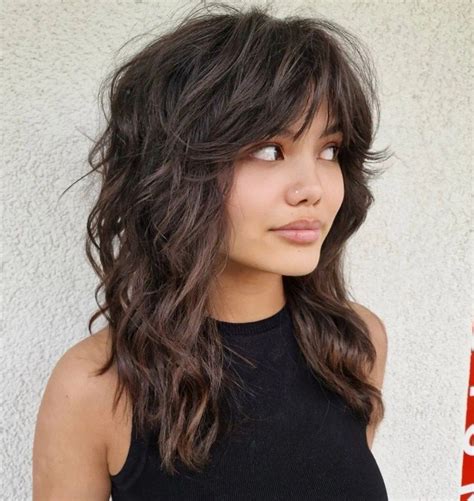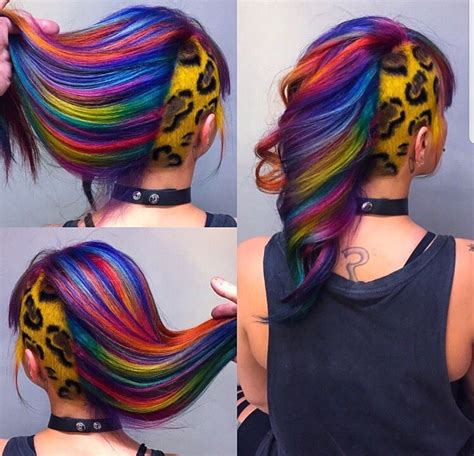Unveil the Magic of Hair Art
Express yourself through the canvas of your hair with the intricate artistry of creative hair design. From subtle enhancements to transformative masterpieces, the possibilities are endless. Immerse yourself in a world of dazzling patterns, vibrant hues, and unique textures that will leave a lasting impression.

Hair Weaving: Interlacing Expressions
Hair weaving, an ancient technique, seamlessly blends extensions into your natural hair. This versatile method allows for effortless volume, length, or color transformations. With various types of extensions available, including human hair, synthetic fibers, and clip-ins, hair weaving caters to diverse hair textures and preferences.
Dreadlocks: Embracing Artistic Anarchy
Dreadlocks, a symbol of freedom and individuality, add a touch of bohemian flair to any hairstyle. The process of matting hair together creates unique patterns and textures. From palm rolling to backcombing, there are multiple techniques to achieve the desired dreadlock style.
Braiding Mastery: Weaving intricate Patterns
Braiding, an art form passed down through generations, translates to countless intricate hairstyles. From classic three-strand braids to fishtail plaits, French braids, and intricate updos, braids add depth, texture, and a touch of elegance to any occasion.
Hair Painting: A Canvas of Vibrant Hues
Hair painting, a technique akin to painting on a canvas, allows for unparalleled color customization. Using specialized brushes and high-quality dyes, hair artists create seamless blends, eye-catching gradients, and artistic patterns that transform hair into a vibrant masterpiece.
Hair Sculpture: Shaping Hair into Art
Hair sculpture, an avant-garde form of hair design, defies the boundaries of traditional hairstyling. Using specialized tools and unconventional techniques, hair artists mold hair into elaborate sculptures, creating wearable works of art that turn heads and ignite imagination.
Common Mistakes to Avoid
- Over-Bleaching: Excessive bleaching damages hair, leading to breakage and loss of elasticity.
- Inconsistent Weaves: Poorly blended weaves create unnatural and unflattering results.
- Unnatural Dreadlocks: Dreadlocks should form naturally through matting; forced methods can cause hair damage.
- Loose Braids: Loose braids can unravel easily, compromising the desired style.
- Uneven Hair Painting: Improper dye application leads to uneven color distribution and a sloppy appearance.
Frequently Asked Questions
1. What is the cost of hair weaving?
The cost of hair weaving varies depending on the type of extensions used, the length and thickness desired, and the experience of the stylist. On average, expect to pay between $200-$1,000.
2. How long do dreadlocks take to form?
The formation of dreadlocks through natural matting can take several months to years. However, some techniques, such as palm rolling, can expedite the process.
3. Can hair painting damage my hair?
Properly performed hair painting using high-quality dyes should not cause significant damage. However, frequent touch-ups and improper bleaching can weaken hair.
4. What is the lifespan of hair extensions?
The lifespan of hair extensions depends on the type of extensions, the method of attachment, and the maintenance routine. Properly cared for extensions can last anywhere from a few weeks to a year.
Table 1: Hair Extension Types and Benefits
| Type | Benefits |
|---|---|
| Human Hair | Natural feel, versatile styling |
| Synthetic Hair | Affordable, wide color range |
| Clip-In Extensions | Temporary, easy to apply and remove |
| Tape-In Extensions | Long-lasting, low maintenance |
Table 2: Dreadlock Techniques
| Technique | Description |
|---|---|
| Palm Rolling | Manually twisting hair sections together |
| Backcombing | Teasing hair at the roots to create tangles |
| Interlocking | Hooking dreadlocks together for added strength |
| Twist and Rip | Separating hair into sections and twisting and ripping them apart |
Table 3: Braiding Styles
| Style | Description |
|---|---|
| Three-Strand Braid | Basic braid with three strands |
| Fishtail Braid | Intricate braid with interwoven strands |
| French Braid | Hair is gathered and braided over the head |
| Dutch Braid | Similar to French braid, but hair is gathered under the head |
Table 4: Hair Painting Techniques
| Technique | Description |
|---|---|
| Ombre | Gradual blending of two or more hues |
| Balayage | Freehand painting for natural-looking highlights |
| Foilage | Lifting hair using foils for precise color placement |
| Reverse Balayage | Darkening hair roots while lightening the ends |
